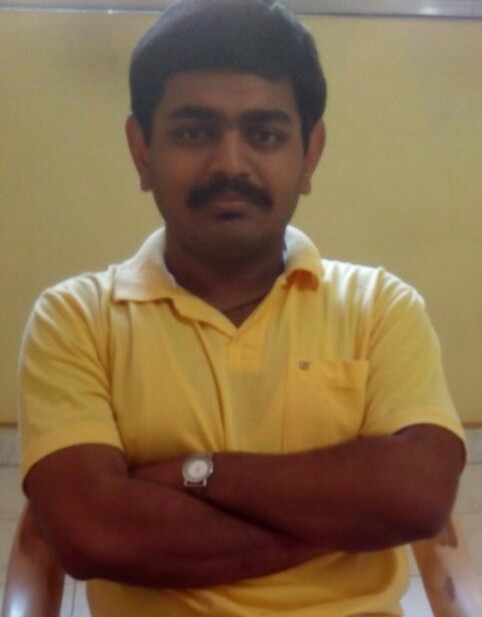
Burying the GP- Part I: Portraying the rise of specialist culture in urban India
We would all call him “doctor uncle” since the time we knew him, and somewhere along the way he lost his native name-he would be just that: our beloved doctor uncle. Every time I would think of him, a steady, inspiring image would flash in front of my eyes: neat, clean cut attire, white hair, stethoscope around his neck and a mellow smile lit on his face, all surrounded by an air permeated with the typical smell of a riot of medicines. Yeah! That’s how we all portrayed him- an image that came with utter admiration and respect. In times that were rough on our bodies, our entire neighborhood would rush to him for more than just treatment. He knew more about us than our ailments; he would care about our pockets while writing treatment plans, and gave advices ahead of drugs: things that gave his clinic a warm, homely atmosphere. In times of gravity we would look up to him like a revered elder; in times of leisure, he would break all the ice in between by playing a family friend. He presented a picture of a doctor so enchanting that it propelled many towards taking up his path. He was our family doctor.
It’s many years down the line now, and I’m today,what people call me, a doctor. Talking of our doctor uncle, very few things have changed since then- he still caries all of his dignified demeanour, all his wisdom and all his white hair. His physique has changed little, with the exception that it needs a third leg at times. This dusk, he sits on his old, weared out, still full of life armchair. As he looks at me, I can sense the mirth of perpetuating legacy playing vividly in his eyes. Then, with an impassioned but slightly wistful smile, he says “So which specialty are you inclined towards?” I sense easily the happy yet thick air around us and pause a bit. “Today everyone wants to be a specialist” he says, “Back in our days many of us used to love the mystical factor of medicine, the mundane magic of surgery, the sense of adventure in obstetrics and divinely sweet character of pediatrics- and went ahead to become zealous general practitioners. Today everyone gets into a race of glamour and glory before they even develop a vision. Today a layman with a headache bypasses his family doctor and visits a neurologist. The ‘connect’ and ‘warmth’ aspects of the doctor is lost. Back in our days we used to have a personal connect with our patients-we knew their records and medical histories, and saw them more as a person than an organ- system. That person oriented approach has changed into a disease and organ system specific approach today. Today, we have more retail outlets than counseling corners. The glare of being a specialist has unduly overshadowed the seven colours of being a basic doctor.”
Since the last few decades, a specialist cult has been rampaging through the world of medicine and has inadvertently stomped the GP into insignificance. Back in the good old days, general practice came with glamour and dignity. In the years that followed, a spectrum of specialties arose as a step up from general practice- like an evolution from the jack of all trades to the master of one- but the concept of general practice received no boost to keep it at par with the growing cult of specialties. General practice was gradually despoiled of it’s glamour, dragged to the bottom of the totem pole and reduced to an obligatory, default level that one needs to clear before approaching the superior one. Today a GP is not a GP by choice but by default, since being just a GP means settling for less- something even a modestly ambitious medico would be squeamish about. Today, a medical student starts fantasizing about a specialty even before he/she commences his/her academic journey. Many have no qualms going through MBBS with little mind and consequently lacking in competence. This whole thing is so contagious across the air that even a layman who is discerning enough tends to disdain the GP as “just MBBS” and looks for a specialist as his first choice. It’s not possible to deny or deprive the specialist of any of it’s importance, but a specialist cult taking away the rightful niche of a GP is something that is not redolent of happy times in healthcare.
Mistake not to think that this scenario is uniform across nations- nor think along the line that such a growing cult of specialties is an outcome of modernisation. I’ll row you to the extreme west to show you what happens when you place the GP at the bottom of the totem pole. As you look at the US residency matches year after year, you see that the US struggles to fill up all it’s primary care seats with it’s own graduates- they’re filled up largely by international medical graduates from other nations: the reason being the unduely more glamour and remuneration associated with being a specialist. Interestingly, the US also has one of the most expensive healthcare in the world, and still relatively poor health outcomes and patient satisfaction. Now look at countries like UK, Sweden and Denmark: they invest relatively less on healthcare and still have the luxury of having the best health outcomes. Interestingly again, over a third of UK’s medical graduates aspire of becoming GPs right from medical school. GPs are held in high regard by their masses, a career as a GP is highly attractive, coming with lucrative pay and job satisfaction. Consequently, the family doctor forms the foundation of their healthcare sector. Studies conducted in this regard persistently bat for general practitioners, stating that increased focus on tertiary, specialist based care is synonymous with expensive healthcare and relatively poor outcomes and patient satisfaction.
Now, putting all the jargon and gibberish aside for a few moments, think what happens when you substitute a GP with specialists. A huge spectrum of common ailments that could have been adequately addressed through a one-stop window called the GP, is then left to an array of discrete specialists which implies more visits, more futile visits to a specialist, more unnecessaryhospitalisations and a brain waste over and above the high expenses incurred. Because of the organ-system specific approach, a patient with an undifferentiated illness is probable of making many rounds to multiple specialists, and in the process, being compelled to go through numerous high priced investigations. The absence of rational referring by a GP creates chaos in the system. And then, there are problems with the access of the right healthcare resource at the right time. A specialist cannot be expected to be at the patient’s disposal round the day, let alone the much assuring home visits and at the sudden, perturbed hours of emergency, unlike the family doctor. All of that is synonymous with high expenses and poor outcomes.
Unabating the standing of specialists, it’s high time we recognise that GPs are highly important components of our healthcare sector. The future of healthcare portends irregularities if we don’t uphold the basic family doctor. But how do we add zest and merit to the already tarnished picture of general practice? How do we actuate a system that functions with utmost efficacy with the family doctor as the backbone? Also, how do we enable our fresh, young graduates to function confidently as competent family docs? Provided I run more of a blog thing than a book thing, I feel it’s gonna be hasty for us to analyze all of that in continuity. We’ll meet again in the next post of my GP series.
The views expressed in this article are entirely the authors and do not necessarily convey the a position taken by Daily Rounds.
Guest Post by Dr. Soham D Bhaduri. Dr. Bhaduri is a medical graduate and a Philosophy of Mind enthusiast, and blogs at www.freethinkingmedic.blogspot.com


